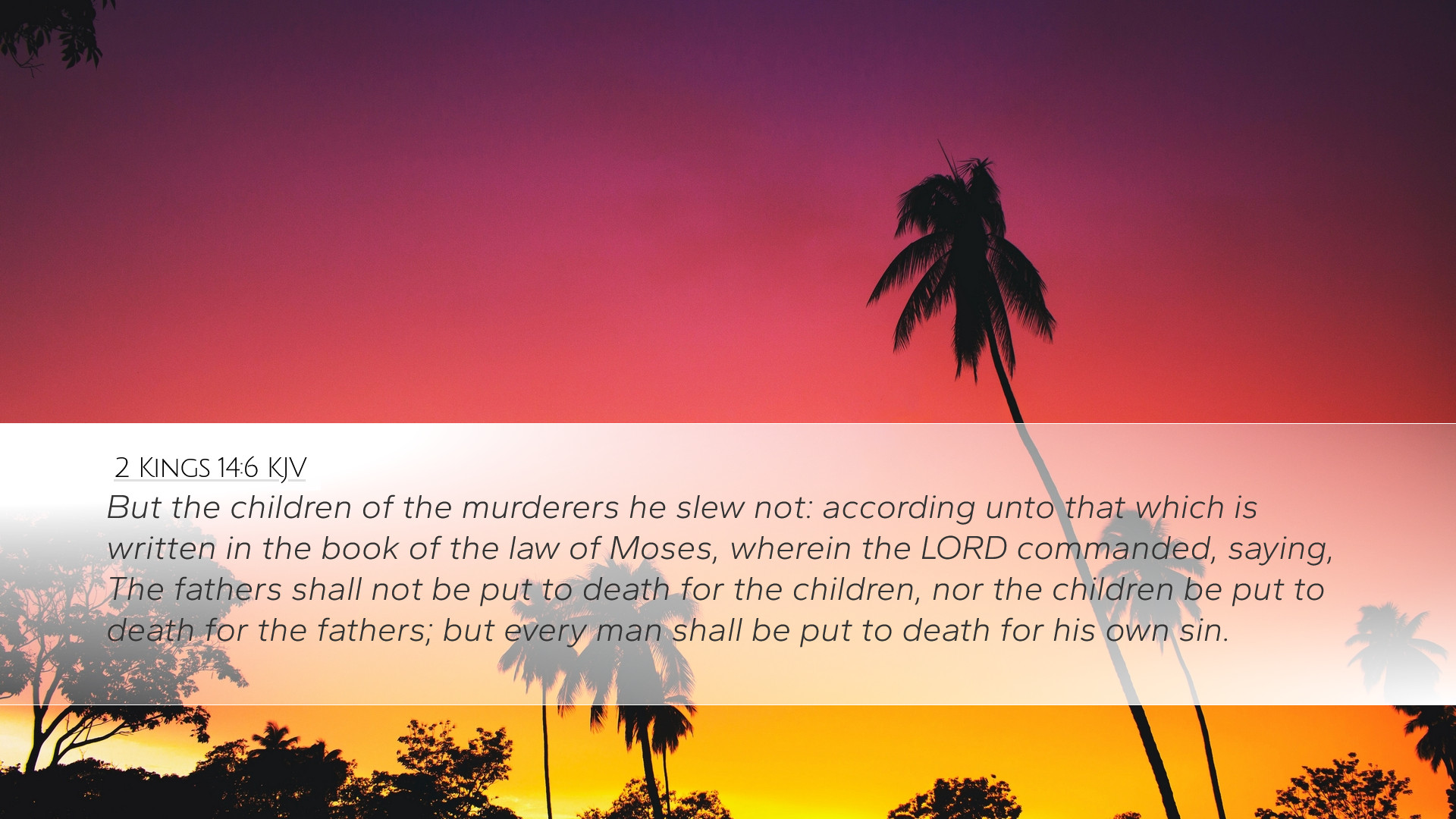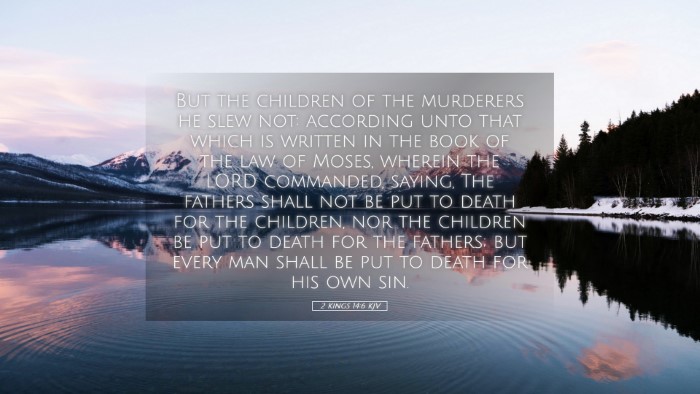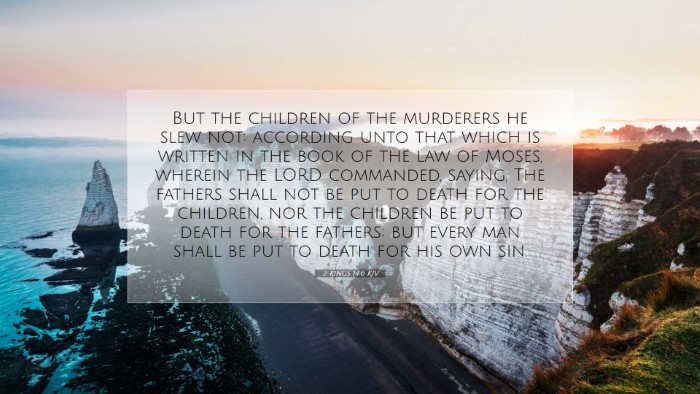Commentary on 2 Kings 14:6
Verse Context: The verse reads: “But the children of the murderers he slew not: according unto that which is written in the book of the law of Moses, wherein the LORD commanded, saying, The fathers shall not be put to death for the children, nor the children be put to death for the fathers: but every man shall be put to death for his own sin.”
Overview
This verse follows the reign of Amaziah, King of Judah, who initiated a campaign of justice against those who had taken the life of his father, King Joash. However, the verse introduces a significant theological point which underlines God's justice as expressed in the Law, demonstrating a mercy that extends even towards the descendants of sinners.
Theological Implications
Justice and Mercy: The refusal to put the children to death provides a dual insight into God’s character: His commitment to justice and His capacity for mercy. Amaziah reflects this character by differentiating between the sins of the fathers and those of the children. This act points towards the biblical principle that each individual is accountable to God for their own actions.
Matthew Henry's Insights
Matthew Henry emphasizes the importance of personal responsibility and righteousness. He notes:
- The moral clarity in Amaziah's decision to spare the children, which he interprets as obedience not only to civil justice but also to divine command.
- Henry points out that the law spoken of in this passage indicates the inalienable human right to live, untouched by the sins of their forbearers, promoting an understanding of corporate and individual sinfulness.
Albert Barnes' Exegesis
Albert Barnes comments on the legal structure behind this decision:
- He notes that Amaziah's act was influenced by the established laws given through Moses which forbade the punishment of children for the crimes of their parents, reflecting a divine justice system.
- Barnes highlights that this demonstrates God’s justice as an individualistic framework, where everyone must bear their own responsibility.
Adam Clarke's Interpretation
Adam Clarke provides a deeper analysis of the theological significance of this passage:
- Clarke underscores that this stand against punitive justice towards family lines illustrates the principle of divine grace, where individual repentance is honored over hereditary guilt.
- He draws parallels between this Old Testament passage and New Testament understandings of personal accountability in light of Christ’s work, suggesting an ongoing theme throughout Scripture.
Practical Applications
For pastors and theological students, this verse serves as a critical reflection point on the nature of sin, accountability, and the principles guiding church discipline:
- Personal Responsibility: This passage is a reminder that in teaching and preaching, it is essential to emphasize that each individual will stand before God to give an account for their own lives, as supported by Romans 14:12.
- Mercy in Justice: The act of sparing the children encourages a re-examination of how communities approach justice. It serves as a foundation for discussions on mercy and grace within the church, particularly concerning forgiveness.
- Preaching the Law and Gospel: The balance of law and grace becomes crucial here, as it states the necessity of upholding God’s commands while also offering hope and redemption to those who may have been affected by generational sins.
- Societal Reflection: The modern application calls into question how societies today can sometimes hold individuals accountable unfairly for the sins of others, calling for reflection on restorative justice rather than retributive measures.
Conclusion
In reflecting on 2 Kings 14:6, the commentary draws forth a significant biblical principle: the balanced interaction between justice and mercy, which shapes the character of God and His expectations for His people. Pastors, students, and theologians are encouraged to meditate on these themes, explore their implications in personal and communal contexts, and share this understanding with others as part of a transformative journey in faith.


